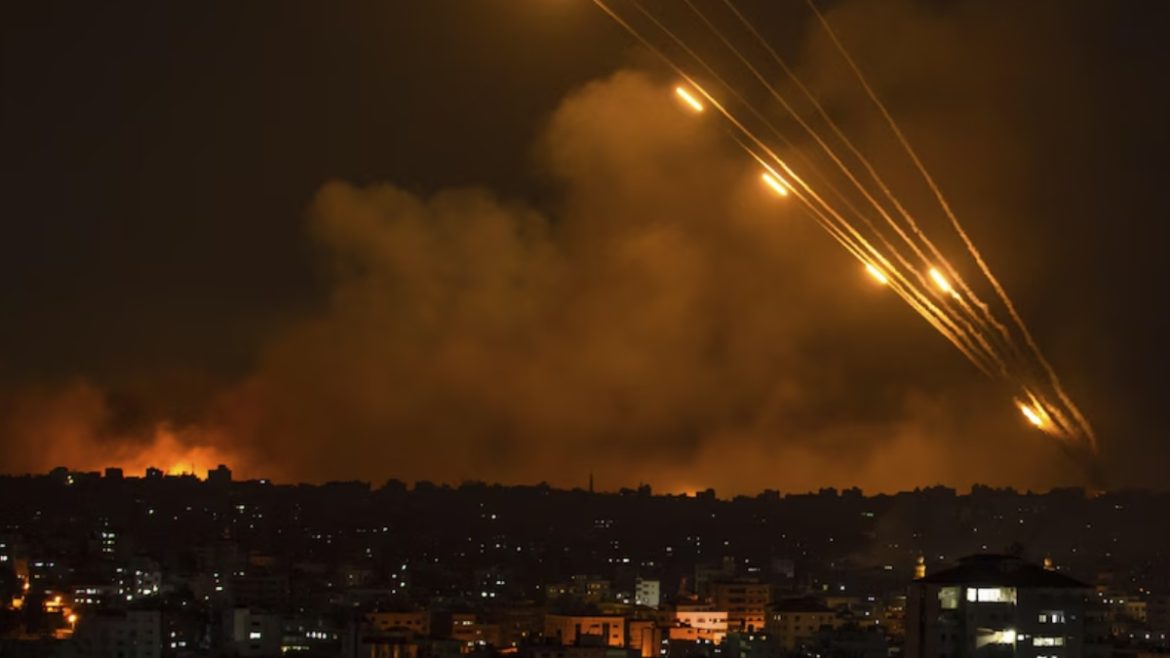Tensions between Israel and Iran have sharply increased. This situation is now causing big changes around the world. It affects how people travel, what things cost, and the stability of the global economy. This report looks at what effects we are and will be seeing.
Effects on Flights and Travel Around the World
The rise in tensions has caused major problems for air travel globally. Large areas of airspace over Israel, Iran, Iraq, and Syria are now closed. This means planes cannot fly there for safety reasons.
Many long-haul flights from Europe to Asia, India, Australia, and New Zealand must now fly much longer routes. They go through narrow, crowded corridors over Turkey or Egypt and Saudi Arabia. These paths are now jam-packed, putting overwhelming pressure on air traffic controllers. This results in longer flight times, which can add several hours to a journey, leading to widespread delays across multiple continents.
These longer routes also mean planes use significantly more fuel, leading to higher operating costs for airlines. These increased costs can then translate into higher ticket prices for travelers, making international journeys more expensive. Major airlines like American Airlines, United, Lufthansa, Air France, Singapore Airlines, and British Airways have had to stop or change many flights. Israel’s main airlines, El Al and Israir, also halted many services, causing further disruptions.
Tens of thousands of travelers heading to or from Israel are now stuck, with their travel plans severely disrupted. Some are being rerouted through other countries like Jordan or Cyprus, often facing long waits and extra travel legs. Governments are actively trying to help their citizens get home through special arrangements or evacuation flights. Overall, people are less sure about traveling, especially to or near the Middle East, a region vital for global aviation. This lack of confidence could hurt the tourism industry for a long time, impacting economies reliant on travel.
Read Also: South African Rand Drops Amid Iran-Israel Conflict
Effects on the Global Economy and Inflation
The conflict has also sent shockwaves through the world’s money markets, affecting prices and economic stability.
Oil and natural gas prices quickly went up when the fighting started. Brent crude oil prices rose by about 10%, and natural gas prices by about 7%. This immediate jump reflects market concerns about potential supply disruptions from the oil-rich Middle East. There is a significant worry about the Strait of Hormuz, a very narrow waterway. A large portion of the world’s oil passes through this strait daily. If it were to be blocked or disrupted, oil prices could jump much higher, potentially leading to big global inflation as energy costs surge worldwide.
Rerouting flights and cargo ships also means higher insurance premiums and increased fuel costs for transportation. These extra costs are often passed on to consumers, making a wide range of goods and services more expensive for everyone. This contributes to inflationary pressures across various sectors.
Businesses and individuals become more cautious with their money because of the increased uncertainty. They might delay making big investments or spending plans, which can slow down economic growth globally. This wait-and-see approach affects supply chains and overall market activity.
Countries close to the conflict, like Egypt, Jordan, and Lebanon, are likely to suffer more direct economic impacts. Their vital tourism revenues could fall sharply, as fewer people feel safe to visit. Exports might decrease, and foreign investments could decline, putting pressure on their local economies and exchange rates.
So far, central banks in big economies have largely maintained their monetary policies, not reacting directly to the conflict with interest rate changes. However, they are closely watching the situation. They remain ready to act if higher energy prices or shipping costs begin to feed broadly into wages and general consumer prices, which could trigger a stronger inflationary trend.
The conflict affects different parts of the world unevenly. Countries in Asia, for example, might be hit harder because they rely heavily on oil and gas imports from the Middle East. Furthermore, there are reports that some individuals and entities in Israel have moved significant amounts of money out of the country, reflecting a level of economic concern and a desire to protect assets from potential instability.
Humanitarian and Wider Crisis
Beyond economic and travel impacts, the conflict brings a significant human cost and broader global concerns.
Reports indicate hundreds of people have been killed in Iran due to Israeli strikes, with thousands more wounded. These numbers vary across different sources, but the loss of life and the scale of injuries are significant, highlighting the direct human suffering caused by the hostilities.
The United Nations Refugee Agency (UNHCR) has issued a serious warning. They caution that this conflict could create another large-scale refugee crisis. The Middle East region already hosts many displaced people from previous conflicts, and new waves of displacement would put immense strain on humanitarian resources and neighboring countries. Indeed, people are already moving away from dangerous areas within both Iran and Israel, seeking safer locations and shelter.
There have also been concerning reports of attacks on medical centers and hospitals in Iran. Such incidents severely impact the ability to provide essential aid and care for the wounded and sick, worsening the humanitarian situation on the ground. Additionally, internet service in parts of Iran has been disrupted, making communication difficult for citizens, affecting their ability to access information, connect with family, and seek help.
Finally, there is an ongoing global worry that the fighting could spread beyond its current scope. This escalation could involve more countries in the Middle East, potentially leading to a broader regional conflict with even more devastating consequences for international stability and human lives. The world watches closely to see if tensions will calm or if the crisis will deepen further.
